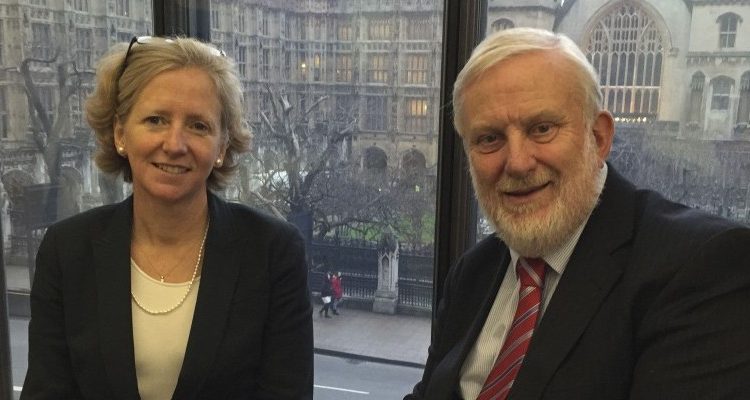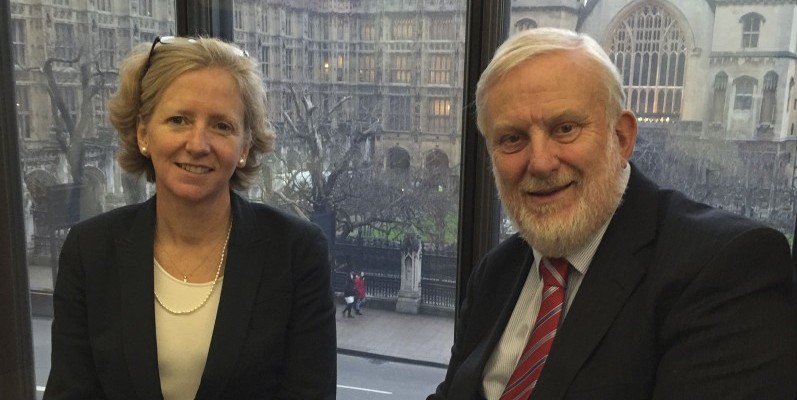Royal Society visit for director of NW Cancer Research
One of Liverpool’s top cancer leads has swapped her lab coat for legislation and spent a “Week in Westminster” as part of a unique pairing scheme run by The Royal Society – the UK’s national academy of science.
Director of the North West Cancer Research Centre at the University of Liverpool, Professor Sarah Coupland, shadowed Mr Andrew Miller MP for Ellesmere Port and Neston at the House of Commons, to obtain a ‘behind-the-scenes’ insight into how science policy is formed, as well as an understanding of the working life of a parliamentarian.
During her time with Mr Miller, Prof. Coupland took part in seminars and panel discussions, as well as attending “Prime Minister’s Question Time” and a Mock “Science and Technology Select Committee” debate.
Prof. Coupland said:
“It has been a very interesting and informative week. It has opened my eyes to parliamentary life and helped me better understand the processes involved in creating health care policies.
“Hopefully I can now share what I have learned with my fellow researchers at the North West Cancer Research Centre, and use this to enable a better understanding between our two very different worlds.
“We are looking forward to welcoming Mr Miller to the Centre and hope that he will be able to understand the importance of the work we do here, and how our research is helping to progress the development of new treatments and therapeutic targets.
“I am very honoured to have been selected to take part in The Royal Society’s Pairing Scheme and hope that it will help provide some input to improve research and medical care outcomes particularly in cancer patients.”
Mr Miller, will now visit Prof. Coupland at the North West Cancer Research Centre early in the New Year, to find out more about the innovative and life-saving cancer research being carried out in Liverpool, as well as seeing some of the challenges that researchers face today.
The Royal Society’s Pairing Scheme aims to build bridges between parliamentarians and some of the best scientists in the UK. It is an opportunity for parliamentarians and civil servants to become better informed about science issues and for scientists to understand how they can influence science policy.
More than 300 pairs of scientists, parliamentarians and civil servants have been partnered up since the scheme was launched in 2001.
Sir Paul Nurse, President of The Royal Society said:
“We set up the Royal Society’s Pairing Scheme to provide the opportunity for MPs and scientists to build long term relationships with each other. We have now organised more than 300 pairings and have expanded the scheme to include partnerships between scientists and civil servants and members of the House of Lords.
Parliamentarians and scientists who have taken part in the scheme have gained from their experiences and the shaping of public policy can only improve over time as these relationships continue to grow.”


